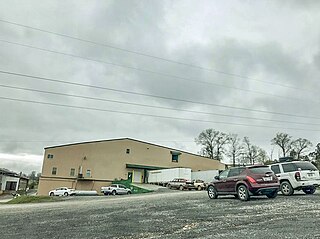 W
WThe 2018 Southeastern Provisions raid was a workplace raid that occurred on April 5, 2018 at Southeastern Provisions, a cattle slaughterhouse and meat-packing facility in Grainger County, Tennessee, United States, near the town of Bean Station.
 W
WThe American Meat Institute (AMI) was the oldest and largest trade association representing the U.S. meat and poultry industry. In 2015, it was merged into the North American Meat Institute (NAMI).
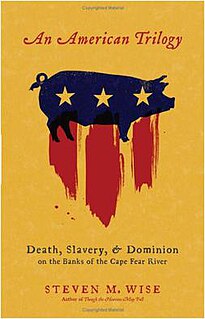 W
WAn American Trilogy: Death, Slavery, and Dominion on the Banks of the Cape Fear River is a 2009 is a non-fiction work by Steven M. Wise about the pig industry in North Carolina. Wise is an American legal scholar who specializes in animal protection.
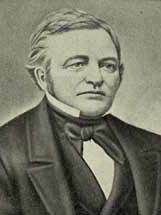 W
WThomas Dyer served as mayor of Chicago, Illinois (1856–1857) for the Democratic Party. He also served as the founding president of the Chicago Board of Trade.
 W
WEmpire Kosher Poultry, Inc. is the largest producer of kosher poultry, beef, lamb, chevon and venison in the United States. The company's headquarters, hatchery and processing facility are located in Mifflintown, Pennsylvania.
 W
WThe Food Safety and Inspection Service (FSIS), an agency of the United States Department of Agriculture (USDA), is the public health regulatory agency responsible for ensuring that United States' commercial supply of meat, poultry, and egg products is safe, wholesome, and correctly labeled and packaged. The FSIS draws its authority from the Federal Meat Inspection Act of 1906, the Poultry Products Inspection Act of 1957 and the Egg Products Inspection Act of 1970. The FSIS also acts as a national health department and is responsible for the safety of public food-related establishments as well as business investigation.
 W
WThe Fort Worth Stockyards is a historic district that is located in Fort Worth, Texas, north of the central business district. A 98-acre (40 ha) portion encompassing much of the district was listed on the National Register of Historic Places as Fort Worth Stockyards Historic District in 1976. It holds a former livestock market which operated under various owners from 1866.
 W
WThe Grain Inspection, Packers and Stockyards Administration (GIPSA) was an agency of the United States Department of Agriculture that facilitates the marketing of livestock, poultry, meat, cereals, oilseeds, and related agricultural products, and promotes fair and competitive trading practices for the overall benefit of consumers and American agriculture. GIPSA was formed in 1994 through the joining of the Federal Grain Inspection Service and the Packers and Stockyards Administration.
 W
WThe Hamlet chicken processing plant fire was an industrial fire in Hamlet, North Carolina, at the Imperial Foods processing plant on September 3, 1991, resulting from a failure in a hydraulic line. 25 workers were killed and 55 injured in the fire, trapped behind locked fire doors. In 11 years of operation, the plant had never received a safety inspection. Investigators believe a safety inspection might have prevented the disaster.
 W
WThe Humane Slaughter Act, or the Humane Methods of Livestock Slaughter Act is a United States federal law designed to decrease suffering of livestock during slaughter. It was approved on August 27, 1958. The most notable of these requirements is the need to have an animal completely sedated and insensible to pain. This is to minimize the suffering to the point where the animal feels nothing at all, instead blacking out and never waking. This differs from animal to animal as size increases and decreases. Larger animals such as bovines require a stronger method than chickens, for example. Bovines require electronarcosis or something equally potent, though electronarcosis remains a standard. The bovine would have a device placed on their head that, once activated, sends an electric charge that efficiently and safely stuns them. Chickens, on the other hand, require much less current to be efficiently sedated and are given a run under electrically charged water. To ensure that these guidelines are met, The Food Safety and Inspection Service inspectors at slaughtering plants are responsible for overseeing compliance, and have the authority to stop slaughter lines and order plant employees to take corrective actions. Although more than 168 million chickens and around 9 billion broiler chickens are killed for food in the United States yearly, the Humane Slaughter Act specifically mentions only cattle, calves, horses, mules, sheep and swine.
 W
WTyson Fresh Meats, Inc., formerly IBP, Inc. and Iowa Beef Processors, Inc., is an American meat packing company based in Dakota Dunes, South Dakota, United States. IBP was the United States' biggest beef packer and its number two pork processor. To reflect the company's multiple operations, the company changed its name to Iowa Beef Processors, Inc. in 1970. After the company expanded operations to pork and other areas, Iowa Beef Processors, Inc., became IBP, Inc. Occidental Petroleum owned IBP from 1981 to 1987, and was the majority owner from 1987 to 1991.
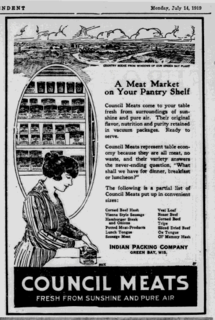 W
WThe Indian Packing Company was a company that was involved in the canned meat industry and was organized in Delaware on July 22, 1919. Its canned meat sold as "Council Meats." When the company was absorbed by the Illinois-based Acme Packing Company in 1921, it had facilities in Green Bay, Wisconsin; Providence, Rhode Island; Greenwood, Indiana; and Dupont, Indiana. At the time of the sale it was controlled by New England Supply Company of Providence, Rhode Island with F.P Comstock as its principal owner.
 W
WJBS USA Holdings, Inc. is an American food processing company and a wholly owned subsidiary of JBS S.A. (B3:JBSS3), a Brazilian company that is the world's largest processor of fresh beef and pork, with more than US$50 billion in annual sales as of 2017. The subsidiary was created when JBS entered the U.S. market in 2007 with its purchase of Swift & Company.
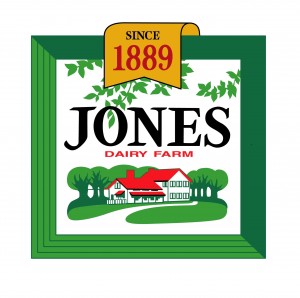 W
WJones Dairy Farm is an American, privately owned food company that produces a series of meat products, including breakfast sausage, ham, Canadian bacon, breakfast bacon, scrapple, and liver sausage. The company was established in 1889. The Jones family has owned and operated the business since its establishment by Milo C. Jones.
 W
WThe Union Stock Yards Company of Omaha was a 90-year-old company first founded in South Omaha, Nebraska in 1878 by John A. Smiley. After being moved to Council Bluffs, Iowa and dissolved within a year, the company was reorganized and moved to South Omaha in 1883. Six local businessmen responded to a request by Wyoming cattle baron Alexander Swan showing interest in a livestock market closer than the Union Stock Yards in Chicago, Illinois. The Company's Union Stockyards in South Omaha were once a fierce rival of Chicago's Union Stock Yards. The Union Stock Yards Company of Omaha was bought out in 1973.
 W
WOSI Group is an American privately owned holding company of meat processors that service the retail and food service industries with international headquarters in Aurora, Illinois. It operates over 65 facilities in 17 countries. Sheldon Lavin is the owner, CEO and chairman.
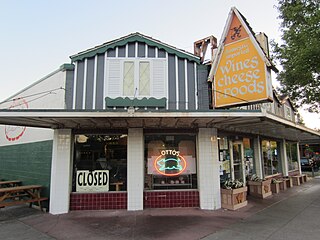 W
WOtto's Sausage Kitchen, formerly Otto's Meat Market, is a sausage restaurant and meat market located in the Woodstock neighborhood of Portland, Oregon, United States. German immigrant Otto Eichentopf established Otto's Meat Market in Aberdeen, Washington in the 1910s before relocating to Portland in 1921. Otto's Meat Market opened on Southeast Woodstock Boulevard in 1922. A new building was constructed at its current location in 1936–1937. Eichentopf's son Edwin acquired the store in the 1940s; Edwin's son Jerry, who began working at Otto's full-time starting at age eighteen, acquired the stores in 1983. Since then, he and his wife have expanded the retail part of the store. The family, which now includes the couple's children and extended members, makes more than forty sausage varieties on site, including some based on Eichentopf's recipes from Germany.
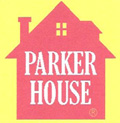 W
WParker House Sausage Company, founded in 1919, is one of the oldest black-owned businesses in the United States. Since 1926, the company has been located in the same building at 4605 S. State Street in Chicago's Bronzeville neighborhood.
 W
WPerdue Farms is the parent company of Perdue Foods and Perdue AgriBusiness, based in Salisbury, Maryland. Perdue Foods is a major chicken, turkey, and pork processing company in the United States. Perdue AgriBusiness ranks among the top United States grain companies. Perdue Farms has 2016 annual sales of $6.7 billion.
 W
WPilgrim's Pride Corporation is an American, multi-national food company, currently one of the largest chicken producers in the United States and Puerto Rico and the second-largest chicken producer in Mexico. It exited bankruptcy in December 2009 and relocated its U.S. headquarters to Greeley, Colorado, in 2011. It is majority-owned by JBS S.A.. Pilgrim's Pride purchased Gold N'Plump for $350 million in late November 2016.
 W
WThe Postville raid was a raid at the Agriprocessors, Inc. kosher slaughterhouse and meat packing plant in Postville, Iowa, on May 12, 2008, executed by the U.S. Immigration and Customs Enforcement (ICE) division of the Department of Homeland Security together with other agencies, the largest single raid of a workplace in U.S. history until then.
 W
WSanderson Farms is the third largest poultry producer in the United States and produces 13.65 million chickens per week. It is the only Fortune 1000 company headquartered in Mississippi. It is one of four companies which largely control the poultry farming industry in the United States.
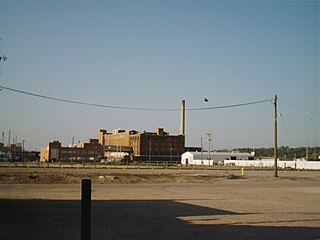 W
WThe Swift & Co. meatpacking plant in Sioux City, in the state of Iowa in the Midwestern United States, was built in 1918–19 as a speculative venture under the name Midland Packing Plant. After going into receivership, it was acquired by Swift & Co. in 1924, and continued to operate until 1974. It was then purchased by a Sioux City businessman and converted to an enclosed mall, the KD Stockyards Station. The building was listed in the National Register of Historic Places in 1979.
 W
WThe 2006 Swift raids were a coordinated effort by U.S. Immigration and Customs Enforcement (ICE) to detain and deport people who are undocumented.
 W
WTar Heel is a town located in Bladen County, North Carolina, in the United States. As of the 2010 census, the town population was 117.
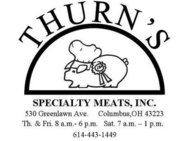 W
WThurn's Specialty Meats or Thurn's is a smokehouse found in Columbus, Ohio. It was founded in 1886 and has continues to operate using the same methods and recipes for 134 years.
 W
WThe Tovrea Stockyards were stockyards operated by the Tovrea Land and Cattle Company that existed in Phoenix, Arizona. Existing on 200 acres, it was once considered the largest feedlot in the world, until encroaching development led to its eventual closure in the late-20th century.
 W
WTyson Foods, Inc. is an American multinational corporation based in Springdale, Arkansas, that operates in the food industry. The company is the world's second largest processor and marketer of chicken, beef, and pork after JBS S.A. and annually exports the largest percentage of beef out of the United States. Together with its subsidiaries, it operates major food brands, including Jimmy Dean, Hillshire Farm, Ball Park, Wright Brand, Aidells, and State Fair. Tyson Foods ranked No. 79 in the 2020 Fortune 500 list of the largest United States corporations by total revenue.
 W
WThe Union Stock Yard & Transit Co., or The Yards, was the meatpacking district in Chicago for more than a century, starting in 1865. The district was operated by a group of railroad companies that acquired marshland and turned it into a centralized processing area. By the 1890s, the railroad capital behind the Union Stockyards was Vanderbilt money. The Union Stockyards operated in the New City community area for 106 years, helping Chicago become known as the "hog butcher for the world" and the center of the American meatpacking industry for decades.
 W
WWright Brand Foods, Inc. was a meat-packing company located in Vernon, Texas, that was eventually bought by the Tyson Foods corporation in 2001. Begun in 1922 by Egbert Eggleston, what would eventually become a multimillion-dollar business started out in the back of a local grocery store.
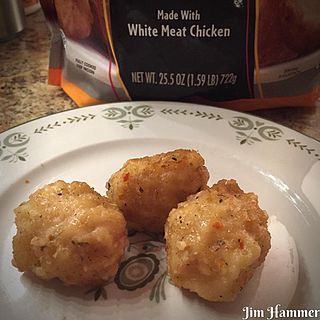 W
WWyngz is a chicken food product that is in the shape of a chicken wing or a bite-size appetizer-type product, but is not actually a chicken wing. The United States Department of Agriculture Food Safety and Inspection Service permits the use of the term "wyngz" on food packaging under the following conditions in which the Agency considers its use fanciful and not misleading:The poultry used is white chicken "Wyngz" is placed contiguous to a prominent, conspicuous, and legible descriptive name in the same color font The smallest letter in the descriptive name is no smaller than one-third the size of the largest letter used in "wyngz" A statement that further clarifies that the product does not contain any wing meat or is not derived only from wing meat is placed in close proximity to the descriptive name and linked to "wyngz" by use of an asterisk. "Wyngz" referenced elsewhere on the package would also need to be displayed with an asterisk linking it to this statement on the principal display panel.